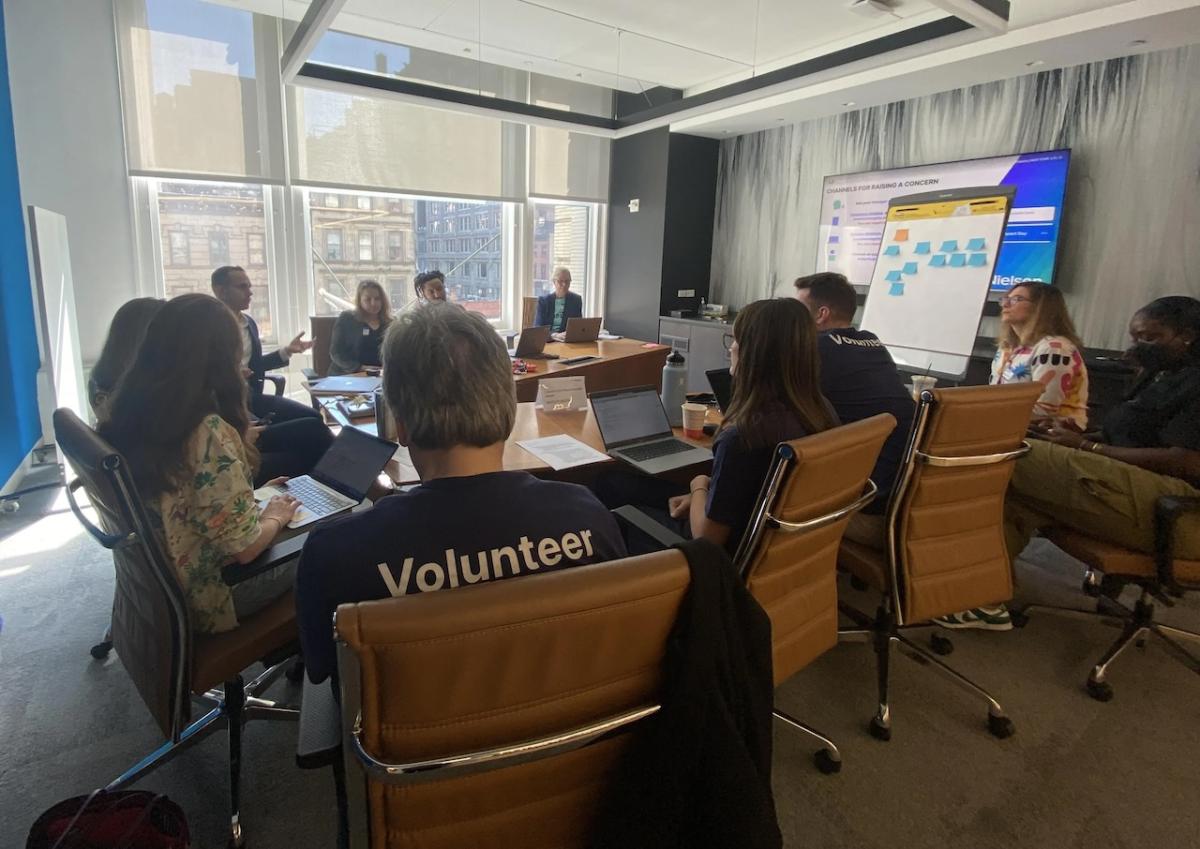The Power and Potential of Data for Good®

Originally published on Nielsen News Center
At Nielsen, we know that data has the potential to transform the world. For over 100 years, we have innovated to bring powerful data to help our clients understand and reach their audiences and drive outcomes. In addition to serving our media and advertising clients, we know that Nielsen data can be an important tool to drive greater representation and inclusion in the media industry, such as our Diverse Intelligence Series. Put simply, our data has the potential to power a better media future for all people. That’s why we are committed to leveraging Nielsen data to advance social change through our Data for Good® program.
What is the Data for Good® program?
Data for Good projects and initiatives share Nielsen data as well as our solutions and talent with nonprofit organizations to make a positive impact, especially to increase representation and encourage inclusion. Our program includes but is not limited to traditional data philanthropy, which involves the donation of data to nonprofit organizations at no cost or at discounted rates. At Nielsen, we think beyond the term “data philanthropy” and aim to build mutual long-term collaborations with nonprofit organizations that leverage not only data, but also our talent and strategic solutions.
Recognizing the importance of this work, in 2021 we committed to a 2024 goal to contribute $30 million in total in-kind value for pro bono data donations, public reports and other support for organizations and topics that are powering a better media future for all people. In 2022 alone, we already donated an estimated $21.7 million in pro bono projects and skills-based volunteering to support nonprofit organizations, including many that are advocating for greater representation and inclusion in the media industry.
Why do we do it?
1. Our Data for Good program helps Nielsen and key nonprofit organizations work together to power a better and more inclusive media future for all.
For example, we collaborate with the Geena Davis Institute on Gender in Media, a research-based organization that works to create gender balance, foster inclusion and reduce negative stereotyping in family entertainment media around the world. For more than five years, we’ve donated pro bono audience measurement data for their reports and other research analyzing diverse representation to drive inclusivity in family programming.
For our global day of service this year, 28 Nielsen volunteers worked in teams to propose solutions and provide actionable recommendations to four nonprofits driving representation in media and technology and the use of technology for social impact. The participating nonprofits included: AI4ALL, The National Association of Broadcasters Leadership Foundation (NABLF), The Paley Center for Media, and Potential Energy Coalition. Teams worked on a variety of projects covering website strategy, audience targeting, sponsorship growth, and data management. In a follow-up survey, all of the nonprofits reported they will be able to use or implement the work created and guidance provided in the next 12 months.
Additionally, since 2017 we have worked with Harmony Labs, a nonprofit organization dedicated to understanding media influence and encouraging media systems that serve the public good. We donate Nielsen audience panel data to help Harmony Labs to gain insight on consumers’ media behavior as well as the content they are engaging with.
2. It helps us get the next generation of diverse talent interested in data careers.
Since 2019, Nielsen has sponsored AI4ALL’s educational programs to train talent from historically excluded groups to become ethical leaders in the artificial intelligence (AI) industry. In 2022, we collaborated with AI4ALL to launch an inaugural Data Jam initiative for students in the organization’s College Pathways program. We donated a data set and provided volunteer support from Nielsen data scientists to help the students learn best practices in data analysis and visualization, and to develop new data visualizations using Nielsen data.
One of our Nielsen volunteers shared her experience: “Volunteering for the Data Jam was an incredible experience. I had the opportunity to mentor students, answer career-related questions and share my experience in the data science industry. As a local leader for Cares, our volunteering BRG, I know how important opportunities like this one are in cultivating more diverse and inclusive future generations of talent in the field.”
3. It helps drive our innovation.
In 2022, we hosted an internal company-wide Data for Good Idea Challenge. This challenge provided an opportunity to leverage the creativity and innovation of our people to explore ways to propel our Data for Good program for an even greater impact.
Dozens of employees from around the world shared their ideas for how Nielsen data, solutions and talent can creatively power a more inclusive media future that works for and represents all people. Nielsen teams across 10 countries submitted ideas on a range of media industry challenges, like the impact of media on mental health, news source credibility and influencer diversity. Six finalists were chosen to present their ideas to a panel of senior leader judges. Winning ideas included a rating for scientific content in extreme weather reporting; a framework to use nonbinary genders in survey-based products and models; and a new metric to evaluate mental health as a standard media key performance indicator (KPI). We’re excited that the Climate Content Rating project has continued to be developed throughout 2023 and a report of findings and analysis is scheduled to launch in early 2024.
As we look to the next 100 years of serving the media industry, we know that powering a better media future will require innovation and collaboration. We remain committed to supporting nonprofit organizations driving representation and inclusion, through our data, insights and expertise. Learn more about our efforts in our 2023 ESG report. We hope that you will join Nielsen in our commitment to use data to advance social change and greater inclusion.

